Among all the festivals in the world, Christmas is very popular and is celebrated by billions of people around the world. We have gathered a complete set of Christmas Facts for Kids that will teach you all about Christmas for kids. You are going to learn what Christmas is, when & why it is celebrated, what does it mean, what it represents, what is its spirit, significance, religious facts, Christmas eve, history, its pagan origins, sants facts, Christmas traditions & their origin, Christmas tree, food, songs, stories, activities for kids, quotes, how it is celebrated around the world and many other interesting facts about Christmas.
Christmas Facts for Kids
1. What is Christmas
- Christmas is an annual festival celebrated on December 25 by Christians all over the world to honor the birth of Jesus Christ.
2. What Is Xmas
- Xmas or Xmass is the shortened form of the word Christmas.
- The origin of “X” is the Greek letter Chi, which is the 22nd letter of the Greek alphabet and initial letter in the word Christós (Χριστός).
- “mas” is from the word “Mass”.
- There is a misconception about the word “Xmas” that the word “Christ” is replaced by “X” in the word “Christmas” as a secular attempt to withdraw religious tradition from Christmas.
- However, the word “Xmas” is used since the 16th century.
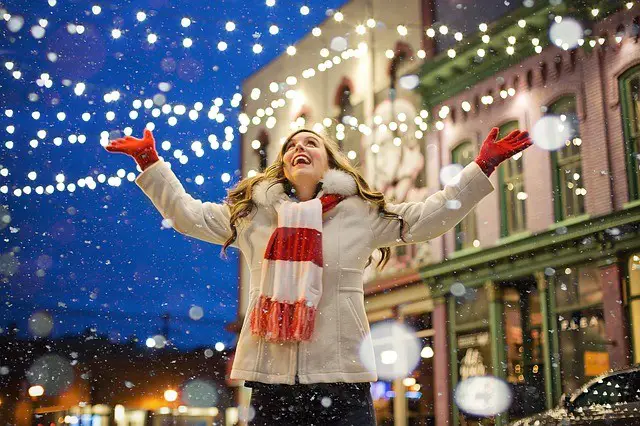
3. When Is Christmas – What Day Is Christmas
- Christians celebrate Christmas every year on the day of 25 December.
- However, in different Christian traditions, Christmas is not celebrated on December 25.
- Orthodox Christians celebrate Christmas on January 7th according to the Gregorian Calendar (Gregorian Calendar is 13 days afterward than Julian Calendar).
- While the Armenian Church celebrates it on January 6.
4. Why Is Christmas On December 25th – Why Do We Celebrate Christmas On December 25
- Not a single and confirm logic exists to explain why we celebrate Christmas on December 25th.
- Christians celebrate it as the birthday of Jesus, however, his exact date of birth is unknown.
- The earliest record of the Christmas celebration on December 25th dates backs to 336 AD when Constantine was the Roman Emperor. Yet, at that time, Christmas was not an official celebration.
- It is a common belief that the early Church probably chose December 25th as the birthday of Jesus to coincide with the ancient pagan Roman festivals of midwinter; the “Saturnalia” and “Dies Natalis Solis Invicti”. In such a way, it was easy to persuade the Roman pagans to accept Christianity as the official religion of the Roman Empire.
5. What Is Celebrated On Christmas
- The birthday of Jesus is celebrated at Christmas.
6. Who Celebrates Christmas
- Christian people celebrate Christmas.
- In countries of the Christian majority, many non-Christian people also celebrate Christmas.
- It is estimated that every 9 out of 10 Americans celebrate Christmas.
7. What Does Christmas Mean – Meaning Of Christmas – Meaning Of The Word Christmas
- Christmas is the abbreviation of “Christ’s mass”.
- The origin of the word “Christ” is the Greek word Khrīstos (Χριστός), which is the translation of the Hebrew word “Messiah” means “Anointed”.
- The word “mass” came from the Latin word “Missa”, which means the celebration of the Eucharist.
- The words “Crīstesmæsse” and “Cristes Messe” were recorded for Christmas in 1038 and 1131 respectively.
8. Where Did The Word Christmas Come From
- The word Christmas came from the Old English word “Cristes-masse”.
- The meaning of the “Cristes-masse” is Christ’s Mass.
The Literal Meaning Of Christmas
- The literal meaning of the word Christmas is “Christ’s Mass”.
Christmas Meaning Catholic
- For Catholics, Christmas means the celebration of the birthday of Jesus.
10. Other Names For Christmas
- The other names of Christmas include:
- Noel
- Nativity
- X-mas
11. What Does Christmas Represent – What Is Christmas All About
- Christmas is annually celebrated to commemorate the birthday of Jesus Christ.
- For most people, Christmas is all about the Christmas tree, Christmas cake, Santa Claus, and Christmas Carols.
- But, Christmas is not only a holiday. It is an event when broken families gather. People show love and gratitude, share good memories, make each other happy, and remember the birth of Jesus.
- It is a festival to reduce the suffering of pain, stress, disappointment, hopelessness, crushed dreams, loneliness, broken promises that people experience around and inside themselves.
- At Christmas, people wear clothes of red and green colors, which represent the birth, death, and resurrection of Jesus Christ, who is the symbol of love, hope, peace, and light.
- The sacrifice of Jesus is honored to make the lives of people full of hope and peace.
12. Christmas Spirit – The Spirit Of Christmas – Christmas Spirit Definition
- The Christmas spirit means:
Appreciation
- Feeling appreciation, being satisfied with our lives, and being grateful for what we have in our lives is all about the spirit of Christmas.
Giving
- Giving love to others in the form of gifts and spending time together with them holds the true meaning of the Christmas spirit. Giving gifts at Christmas is not an obligation but a symbol of love that we have for others in our hearts.
Doing service
- Giving a donation or doing a physical service for others who is in need holds the true meaning of the Christmas spirit. Helping needy people fill our hearts with peace, is the real nature of Christmas.
13. Significance Of Christmas – The Importance Of Christmas
- The significance of Christmas can be explained in many ways. Some of them are:
- Christmas is important because families and friends come together and share love and gratitude, and show appreciation for each other.
- Celebration of the birthday of Jesus Christ inspires many people for a new start of relations and so many other things in their lives.
- Christmas provides a comfortable time to get out of so many tensions and enjoy the celebration. So it is a way of getting peace and relaxation.
14. Religious Facts About Christmas
- Christmas is a religious festival of Christians.
- It is held each year on December 25, in which they celebrate the birth of Jesus.
- The first evidence of the Christmas celebration date backs to 336 AD in Rome when Constantine was the Roman Emperor.
- The earliest Christians were known for commemorating only the baptism and resurrection of Jesus, not the Nativity or birth of him.
- Some earliest Christian scholars, especially Origen of Alexandria, strictly opposed the celebration of the birthday of Jesus.
- 25 December is not the exact birthday of Jesus. Western Christians decided it was the birthday of Jesus at around 273 AD.
- Probably, this day was selected as an alternative to the Roman pagan celebration of “birthday of the unconquered sun” and the Persian celebration of “Mithras”.
- In 320 AD, a Christian writer explained Christmas day as:
“We hold this day holy, not like the pagans because of the birth of the sun, but because of him who made it.”
- The earliest Eastern Church commemorated the birth as well as the baptism of Jesus on January 6. This was the major winter holiday which was known as Epiphany. The date of December 25 was adopted in the middle of the 5th century to celebrate the birthday of Jesus. While baptism was celebrated on January 6.
15. All About Christmas Eve
- Christmas Eve refers to the evening or the whole day before Christmas day.
- It is celebrated on December 24th as a full or partial holiday.
- In Western society and other Christian World, both Christmas Eve and Christmas Day are considered as one of the most important cultural celebrations.
- On Christmas Eve, Roman Catholics and Anglicans as well as most other Christians practice Midnight Mass in churches at midnight or sometimes before midnight.
- People also exchange Christmas gifts on Christmas Eve day.
- Christmas Eve is known as Paramony (which means “preparation”) in the Byzantine Rite.
- Devout Byzantine Christians also practice the Nativity Fast on this day.
- Special meals are eaten on Christmas Eve, such as Reveillon in French-speaking regions, Wigilia in Poland, and Kūčios in Lithuania.
- Italians celebrate Christmas Eve in the traditional Catholic way with “Feast of the seven fishes”.
- Jewish scholars gave the “Nittel Nacht” name to Christmas Eve during the 17th century.
16. How Is Christmas Celebrated
- Christmas is celebrated in many ways. Celebration manners are different in many countries.
- Families and friends get together at Christmas to spend time together, share love, and exchange gifts.
- The traditional way of Christmas celebration is the decoration of homes with colorful bright light and the Christmas Tree.
- Special feasts are prepared for the occasion and Christmas carols are sung.
- Children got special importance on Christmas as their parents and the well-known Santa Claus give them gifts.
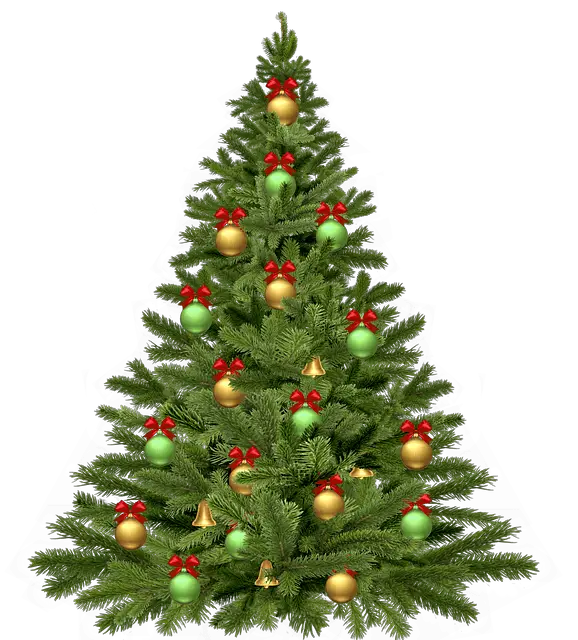
17. History Of Christmas For Kids
- Each year, Christmas is celebrated on December 25 to honor the birth of Jesus.
- According to the Bible, Jesus was the son of Mary.
- Before his birth, God sent an angel named Gabriel to Mary to tell her she would have a special child, a son.
- An angel also came in the dream of Joseph, to whom Mary had to be married, and told him that Mary would have a son.
- Both the Angels said the son of Mary would be named Jesus and he would be a savior and would save people from sins.
- According to the Bible, Mary traveled to Bethlehem along with Joseph, where her son “Jesus” was born.
- Jesus grew up and teach the message of God to people and save them from sins.
- And that is the reason people celebrate Christmas.
18. When Did Christmas Begin – How Long Has Christmas Been Celebrated
- The first Christmas celebration was held on 25 December, 336 AD.
19. Where Was Christmas First Celebrated
- Christmas was first celebrated in Rome when Constantine was the Roman Emperor.
20. Pagan Origins Of Christmas – What Is The Origin Of Christmas – The Origin Of Christmas
- There are two views about the origin of Christmas.
- In the first, it is suggested that as the original and exact birthday of Jesus was unknown during the earlier centuries, so Christian scholars did a long debate to choose a date as early as 273 AD.
- Many dates were proposed including; March 21, March 25, April 18, April 19, May 20, May 28, November 17, November 20, and January 2.
- Western Christians chose the date of December 25 for the celebration of Jesus’ birthday.
- Their decision was probably based on their desire to provide an alternative to the pagan Roman festival “birthday of the unconquered sun” and the Persian festival “birthday of Mithras”, which were celebrated on the winter solstice.
- However, this view has a difficulty of how early Christians suggest coinciding with a pagan festival while early churches were extremely intent to authentically differentiate themselves from pagan practices and beliefs.
- The second view is that 25 December was chosen as the birthday of Jesus through a priori reasoning (a knowledge that derived based on self-evident truth).
- In the prior reasoning, the spring equinox (a day on about 20 March in the Northern Hemisphere and 22 September in the Southern Hemisphere when the length of night and day are about equal) was identified as the world’s creation date and its 4th day (25 March, the day at which light was created) as the day of conception of Jesus.
- 25 December comes nine months later than 25 March, so it was selected as the birthday of Jesus.
- However, the practice of Jesus’ birthday celebration as a festival on such a large scale started in recent centuries.
- In the United States, Christmas is celebrated as a federal holiday since 1870.
21. Where Was Christmas Originated
- Christmas was probably originated in Rome, where Christian scholars chose a special day for the “Mass of Christ” or “Christmas”.
22. Santa Facts – Fun Facts About Santa
- There are many popular stories about the origin of Santa Claus.
- The most common story is that he was a Christian bishop who was born around the 4th Century AD in present-day Turkey.
- His name was Saint Nicholas and his parents died when he was a young boy.
- His parents left a lot of money. He was an extremely kind man and decided to dedicate his life and money to helping needy people.
- So he started giving gifts to children and helping the sick and needy people.
- He was then known as the protector of children and sailors.
- In different countries around the world, Santa Claus is known by different nicknames, such as Pere Noel (in France and Belgium), Babbo Natale (in Italy), Cursed men (in Netherland), Yolo Pooki (in Finland), Hotei Osho (in Japan), Gilt Hampton (Sweden), and Don Chelli Ren (in China).
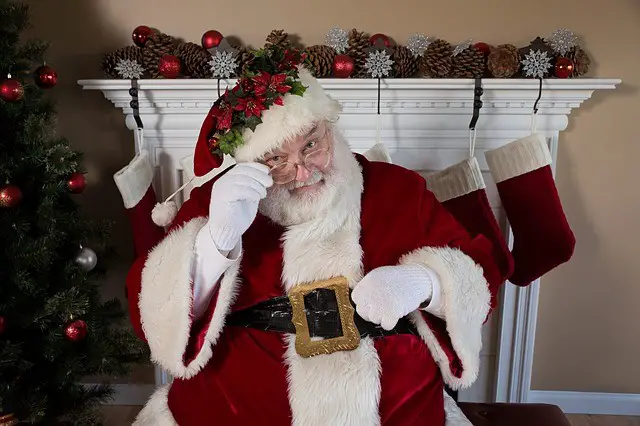
23. World Christmas Traditions – Christmas Holiday Traditions – Christmas Traditions For Kids
- There are different Christmas traditions all around the world.
- Many nations celebrate Christmas with the most common traditions of:
- Putting and lightning of Christmas tree
- Hanging of the Advent Crown or Advent Wreath
- Christmas stocking
- Setting out milk and cookies for Santa Claus
- Candy canes
- Creation of Nativity scene portraying the birth of Jesus
- Singing Christmas Carols and telling stories about Baby Jesus, Santa Claus, Saint Nicholas, Father Christmas, and Grandfather Frost or Christkind
- Sending Christmas cards
- Fasting and other religious practices like midnight Mass or Vesper on Christmas Eve
- Burning of the Yule log
- Giving and receiving gifts
24. History Of Christmas Traditions
- The following is the history of some of the most popular and common Christmas traditions:
- It is unknown why people hang socks for Santa. However, it is probably a variant of the old tradition of leaving out shoes with hay put inside them on the evening of December 5, St. Nicholas feast day. On the next morning, lucky children would find that the hey in their shoes were replaced with coins.
- Caroling at Christmas is a 19th-century tradition. In the past, neighbors only visited each other and convey the wishes of good luck.
- Using evergreen trees for Christmas is a much older tradition that even dates back before Christianity. The first Christmas tree was decorated in 1510 in Latvia.
- The origin of using green and red colors at Christmas is unknown. However, the origin of the green color is probably the evergreen tradition before Christianity. The red color is probably taken from the holly berries.
- The tradition of leaving cookies and milk for Santa probably came from ancient Norse mythology.
- The tradition of burning a Yule log was part of the winter solstice celebrations before Christianity.
- The eggnog drink is probably inspired by the Medieval drink made with milk and eggs called “Posset”.
25. Origin Of Christmas Traditions
- The well-known Christmas traditions have the following origin:
- Decking the halls has origin in the pagans’ tradition of Northern Europe where evergreen winter plants like Holly and Ivy were brought inside as a symbol of continued life and to make the dark winter days cheerful.
- The modern Christmas tree originated during the 17th century with German Lutherans. However, it also has probably roots in Latvia and pagan traditions where tree worship was a common custom.
- In Italy, a witch La Befana flew over two houses during Epiphany Eve (6 January) and deliver candies and gifts to children all over Italy.
- In Northern Europe, people left food out for mythical being Odin, which he replaced with gifts.
- Later, those traditions became associated with St. Nicholas known as Santa Claus.
- The eight flying reindeer probably originated from the eight-legged flying horse of the mythical being Odin.
- The date of December 25 was chosen as Jesus’s birthday after a lot of debate probably to coincide with the pagan and other celebrations on the winter solstice, such as the Roman “Sol Invictus”, the Nordic “Balder”, and the Persian “Mithras”.
26. How Was Christmas Celebrated In The Past
- In the past, there were no Christmas celebrations like the present day.
- In 1837, there was no concept of Christmas Crackers or Santa Claus in Britain.
- For most people, there was no holiday from work on Christmas day.
- People sent no Christmas cards to each other.
- Most of the present-day Christmas celebrations came with the industrial revolution of the Victorian period.
27. Facts About Christmas Trees
- The history of using evergreen trees on the celebration of winter solstice date back before Christianity.
- Other types of trees were also used as Christmas trees other than evergreens, such as the trees of hawthorns and cherry.
- The first known Christmas tree was decorated in 1510 in Riga, Latvia.
- In the mid 17th century, people started lightening the Christmas tree with small candles.
- In 1882, Edward Jhonson (the assistant of Thomas Edison) brought the idea of electric lighting of the Christmas tree.
28. Christmas Food
- The most famous dishes and foods of Christmas include:
- Brine-soaked turkey roasted in the oven
- Candy cane
- Fruitcake
- Christmas pudding
- Stollen
- Gugelhupf
- Vitello tonnato
- Mulled wine
- Foie gras en cocotte
- Danish Christmas meal
- Kouglof
29. Christmas For Kids – Christmas Activities For Kids
- Christmas activities for kids include:
- Christmas holiday party or class party
- Playing Christmas games
- Making Christmas crafts
- Christmas treats
- Telling and listening to Christmas stories
- Singing Christmas songs
30. Christmas Games For Kids
- Some fun Christmas games for kids are:
- Candy cane hunt game
- Christmas musical chair game
- Snowblower game
- Stocking guessing game
- Stack the gifts game
31. Christmas Songs For Kids
- Some of the most well-known Christmas songs for kids are:
- “We Wish You A Merry Christmas”
- “I’m A Little Star”
- “I’m A Little Snowman”
- “Frosty The Snowman”
- “The Lights on The Christmas Tree”
32. Christmas Stories For Kids
- Some of the most popular Christmas stories for kids are:
- “Rudolph The Rednosed Reindeer”
- “The Fire Tree”
- “How The Grinch Stole Christmas”
- “The Gift of the Magi”
- “The Elves and the Shoemaker”
- “Twas the night before Christmas”
33. Christmas In Italy For Kids – Christmas In Italy Facts
- In Italy, Christmas celebrations start on December 8 and end on the day of Epiphany, January 6th.
- 8th December is celebrated as a public holiday and on this day, people decorate Christmas trees.
- Italians exchange gifts on 6th January, the 12th day of Christmas.
- On Christmas Eve, Italian people attend a midnight Mass and eat a meatless dinner as an important part of Christmas celebrations. In Southern Italy, families eat a meal of seven fish on their dinner.
- In Rome, the St. Peter’s Square is decorated with a large Christmas tree, and at noon on Christmas day, the Pope gives his Christmas address.
- In Italian homes, burning the Yule log is important on Christmas, which many families keep continuously burning until New Year.
34. Christmas In Mexico Facts
- In Mexico, Christmas celebrations start on December 12 and last until January 6th.
- During these days, the Nativity scenes, poinsettias, and Christmas shoes can be seen everywhere.
- Christmas starts with the celebration of the Patroness of Mexico.
- From 16 to 24 December, people celebrate the tradition of Las Posada.
- On Christmas Eve, a Mass is held in churches, and a feast is eaten.
- On January 6, the tradition of the Biblical Magi (the Three Wise Men) is celebrated, which ends on the Candle Mass (also called the Feast of the Presentation of Our Lord Jesus) and the tradition of the Niño Dios (child Jesus images presentation).
35. Christmas In France Facts
- In France, Christmas is a major annual celebration and is celebrated as a public holiday.
- Christmas Eve is celebrated on the evening of 24 December, in which families get together and enjoy the traditional French Christmas Eve meal Le Réveillon and wine.
- A midnight Mass is also held on Christmas Eve in churches.
- Many people also decorate a Christmas tree.
- The Santa Claus in France is known as Père Noël or Papa Noël, a legendary gift-bringer for children at Christmas.
36. Christmas In Germany For Kids
- In Germany, Christmas is known as Weihnachten, which is an important celebration throughout the country.
- Advent is an important part of Christmas celebrations and many people use several types of Advent calendars.
- Advent Wreath is a German tradition on Christmas, in which most families put an Advent wreath (which has 4 large candles, berries, and pinecones) on a table on the fourth Sunday before Christmas. The family gathers around the table and together become quiet and reflective for an hour.
- Most people decorate a Christmas tree.
- On 5th December, St. Nicholas Day is celebrated.
- On 25the December, Christmas day is celebrated which is called “Erste Feiertag”, which means the first celebration, while the next day (26th December) is called “Zweite Feiertag” which means the second celebration.
- Germany is popular for its Christmas markets, where all kinds of Christmas decorations and foods could be found.
37. Christmas In China Facts
- In China, about one percent of the population are Christian people who often face restrictions to celebrate Christmas in Western-style.
- The most common Christmas gift in China is a decorated cellophane-wrapped Christmas apple.
- Christmas trees are common and are known as “Trees of Light”.
- The term used for Santa Claus is “Dun Che Lao Ren” which means Christmas old man.
- A Christmas feast is eaten on Christmas Day, which includes foods like barbecued chicken, pork, dumplings, or jiaozi, and soup with wood or cloud ear fungus.
38. Russian Christmas Facts
- In Russia, Orthodox Christians celebrate Christmas on the 7th date of January.
- Some people also celebrate it on December 25.
- A meatless meal of 12 dishes is usually eaten on Christmas Eve.
- Ded Moroz is named for the Russian Santa Claus, which is usually accompanied by the snow maiden, Snegurochka.
39. Christmas In Brazil Facts
- In Brazil, Christmas is celebrated on 25 December like in other Western countries.
- On Christmas Eve, families and friends get together and celebrate the night with a lot of food, drinks, and music.
- Decoration of the traditional Christmas tree is common.
- In Brazil, Santa Claus is just like that of the Western World, who is known as Papai Noel.
- Christmas dinner usually consists of turkey, vegetables, Chester, ham, rice, potato salad, and codfish dishes.
40. Facts About Christmas In Spain – Christmas In Spain Fun Facts
- In Spain, Christmas is celebrated from 24 December to 6 January.
- On Christmas Eve (Nochebuena), most people attend midnight Mass, which is also known as “La Missa Del Gallo” (the mass of the rooster).
- Some Christmas traditions are unique to Spain, such as:
- Beléns (the Spanish word for Bethlehem) is the elaboration Nativity scenes, which Spanish people mostly depict in larger forms.
- Cata Tio (pooping log) is a tradition in Catalonia, in which people dressed up a piece of log with a face, small wooden legs, and a barretina (Catalan hat). Children then hit the log with a stick on Christmas day and sang a special song Caga Tió.
- Reyes Magos (the three kings) give gifts to the children in Spain on January 6. Santa Claus is not important in Spain.
- Roscón de Reyes is a sweet bread of ring shape, which is eaten on the day of Epiphany (6 January). Christmas cake is not common in Spain.
41. Christmas In Ireland Facts
- In Ireland, Christmas is the greatest celebration of the year.
- Traditionally, Christmas in Ireland starts on 8 December.
- Irish people put up and decorate a Christmas tree and also do other decorations and special shopping for Christmas.
- The decoration of evergreen Christmas trees is a relatively new phenomenon in Ireland, where people used Ivy and Holly grass for decoration in the past.
- Irish greeting for Christmas is “Nollaig Shona Duit” or “Nollaig Shona Daoibh”, which means in English “Happy Christmas to you”.
- Other Christmas traditions are similar to those of most other Western countries.
42. Facts About Christmas In Canada
- In Canada, people mostly celebrate Christmas on 25 December.
- Canadian people belong to diverse cultural backgrounds, so there are many different Christmas traditions in Canada.
- A parade, known as the Santa Claus parade is held in Toronto every year on Christmas, in which up to 1,800 people take part.
- People decorate their homes with lights, Christmas trees, and other decorations.
- The most popular and traditional Christmas meal is roosted turkey or ham with vegetables. However, people of different cultural backgrounds eat different Christmas meals.
43. How Is Christmas Celebrated In England
- In England, Christmas is celebrated on December 25.
- On Christmas Eve, many people attend midnight Mass in churches.
- For families, Christmas is a time of receiving gifts and preparing special festive meals.
- Mostly, all the family members decorate a Christmas tree together and also do other home decorations with mistletoe, Holly, and Ivy.
- Nativity plays and Christmas Corals are popular in England.
- Popular desserts at Christmas are Christmas-pudding and triple, while England is also well-known for Christmas Cake.
- Traditional meals at Christmas are a stuffed turkey, pheasant, or duck with gravy and sometimes with cranberry sauce, roasted potatoes, and vegetables.
44. Australian Christmas Facts
- In Australia, the Christmas season arrives usually in the middle of summer.
- Christmas is celebrated on 25 December as a national holiday.
- The Christmas traditions are much similar to that of Irish, British, New Zealand, Canadian, and American traditions.
- Christmas decorations include the traditional Christmas tree, lightenings, and Nativity scenes.
- Santa Claus is an important Christmas character in Australia.
- Traditionally, families do a traditional Christmas Day Lunch together with roasted turkey, ham, roasted chicken, vegetables, and salads.
- Pavlova is the most famous Australian Christmas dessert, which is also a popular Christmas dessert in New Zealand.
45. Christmas In The USA
- In the USA, most people celebrate Christmas on December 25.
- As many American people belong to British, Spanish, Italian, French, Mexican, and Polish backgrounds, so different traditions are observed at Christmas.
- Christmas decorations include a Christmas tree, while most people also decorate the outside of their houses with lights and statues of Snowmen, Santa Cuas, and Reindeer.
- People of British origin eat Christmas day meals with roasted turkey, gravy, roasted or mashed potatoes, and vegetables.
- For people of Spanish origin, Lechon is the centerpiece of the Christmas meal.
- Italian Americans eat Feast of the Seven Fishes on Christmas Eve along with desserts like struffoli and panettone.
46. Christmas Quotes For Kids
Some of the popular Christmas quotes for kids are:
“Blessed is the season which engages the whole world in a conspiracy of love.”
“Christmas waves a magic wand over this world, and behold, everything is softer and more beautiful.”
“Christ was born in the first century, yet he belongs to all centuries. He was born a Jew, yet He belongs to all races. He was born in Bethlehem, yet He belongs to all countries.”
“Christmas, my child, is love in action. Every time we love, every time we give, it’s Christmas.”
“Gifts of time and love are surely the basic ingredients of a truly merry Christmas.”
47. Interesting Facts About Christmas – Christmas Fun Facts – Fun Facts About Christmas For Kids
- Every year, Christmas is celebrated in more than 160 countries throughout the world.
- Every 9 out of 10 Americans celebrate Christmas.
- In the United States, 25 to 30 million Christmas trees are sold every year.
- The first probable evidence of the Christmas tree was a pamphlet of 1570, in which a Christmas tree was shown.
- Edward Jhonson (the assistant of Thomas Edison) invented electric Christmas lights in 1880.
- The tradition of the Rockefeller Center Christmas tree was started in 1931 by the construction workers.
- In the 13th century, St. Francis of Assisi started the practice of singing Christmas carols in churches.
In this Christmas season full of joy and warmth, do you want to make your holiday decorations unique? Embroidered Patches are your best choice!
You can print cute Santa Claus patterns or classic Christmas elements, such as snowflakes and reindeer on the patches. If you pursue more personalization, you can also customize patches with family names and special blessings to make this Christmas decoration full of unique warmth.
Don’t hesitate anymore, come and customize your Christmas patches, let this Christmas become more special because of these small patches, and be full of your unique memories!


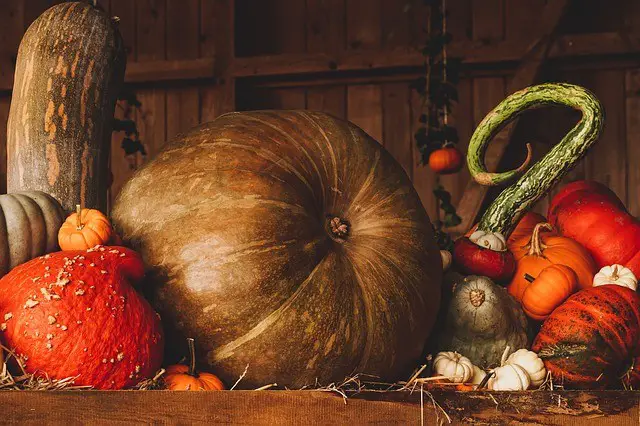

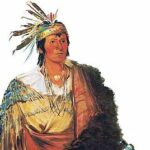

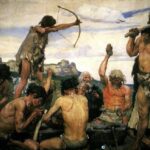
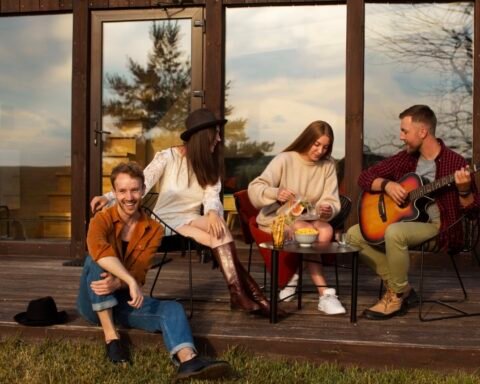



This the best write-ups about Christmas. I got all the informatio information I was researching. Thumps up!!
smash